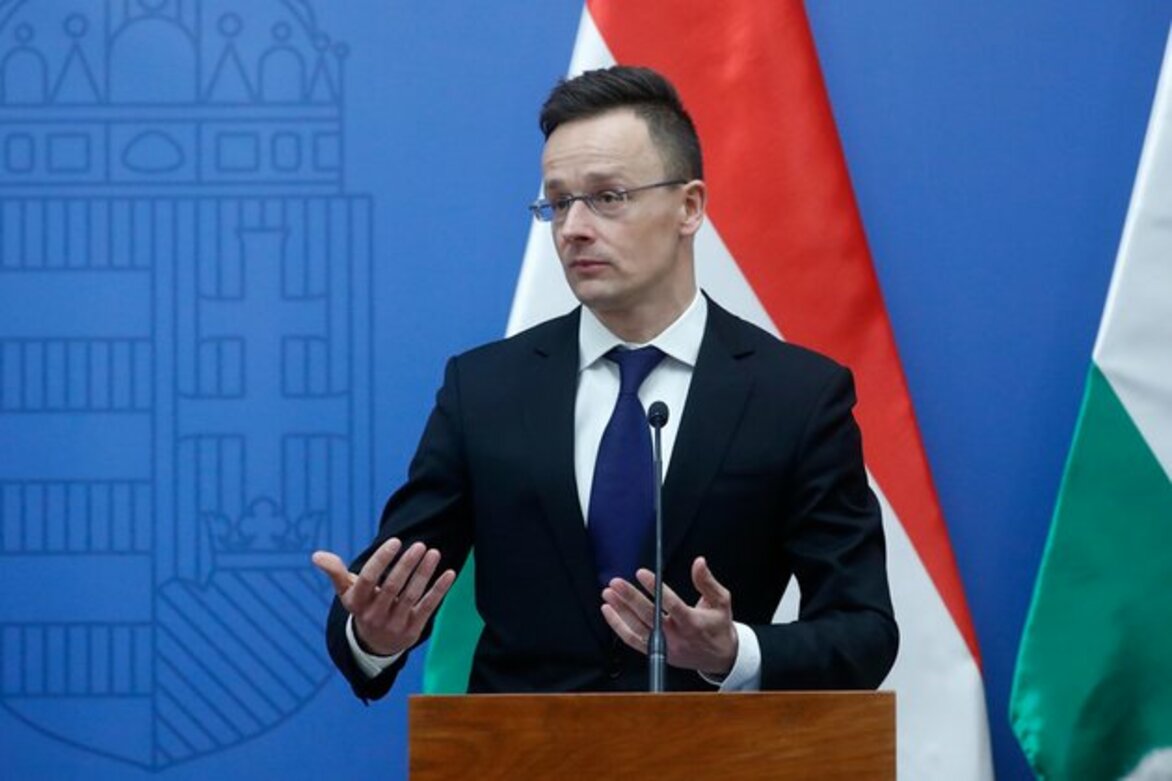West spreading fake news about Hungary foreign minister
RT.com
04 Sep 2024

Budapest has not eased the entry procedure for Russian and Belarusian nationals, Peter Szijjarto insists
Several fellow EU member states are spreading falsehoods about Hungary allegedly easing visa rules for Russian and Belarusian citizens, Foreign Minister Peter Szijjarto has said.
In July, Hungary significantly expanded its National Card immigration program, which allows its holders to work in the country without any special security clearance. Under the updated rules, the card, which is valid for two years and can be extended for another three, paving the way for permanent residency, covers eight countries, including Ukraine, Belarus and Russia.
The development sparked significant concern among the EU officials and lawmakers. In August, Ylva Johansson, the European commissioner for home affairs, who used to hold a ministerial post in the Swedish government, admonished Budapest for including Russia in the program, calling the country "a security threat."
"Giving potential Russian spies and saboteurs easy EU access would undermine the security of us all," she said, warning that the EU "will act" if Hungary's easy-access scheme is deemed a risk. Those concerns were also echoed Latvian Foreign Minister Baiba Braze, who recalled that "there was never a Schengen free for Russian diplomats with hostile intentions."
Speaking at a press conference in Bucharest on Tuesday, Szijjarto dismissed concerns about the National Card program. "There has been a fake news campaign carried out against Hungary... by the Baltic and Nordic countries. They are lying," he charged, stressing that Budapest "has absolutely not eased any kind of procedure" allowing non-EU citizens to enter Hungary.
Following the expansion to the card program, 67 members of the EU Parliament sent a letter to the European Commission insisting that "if the Hungarian government refuses to change its policy, the [EU] should question Hungarian presence in the Schengen area."
Sandor Pinter, Hungary's minister of the interior, has said that "the National Card will be issued in accordance with the relevant EU framework and with due consideration of the possible security risks involved."
After the start of the Ukraine conflict, the EU significantly made it much more difficult for Russian nationals to enter the bloc. In September 2022, it suspended a visa facilitation agreement with Moscow, making the application process more expensive, lengthier and subject to increased scrutiny. The EU has also imposed a blanket flight ban on Russian planes in its air space.
Budapest and the EU have long been at odds over their approach to Russia amid the Ukraine conflict. While most EU members have pushed for sending arms to Kiev and exerting economic and diplomatic pressure on Moscow, Hungary - which is heavily dependent on Russian energy - has opposed this policy. In particular, Budapest has described sanctions against Russia as self-defeating, arguing that arms deliveries will only lead to further escalation.
(RT.com)
